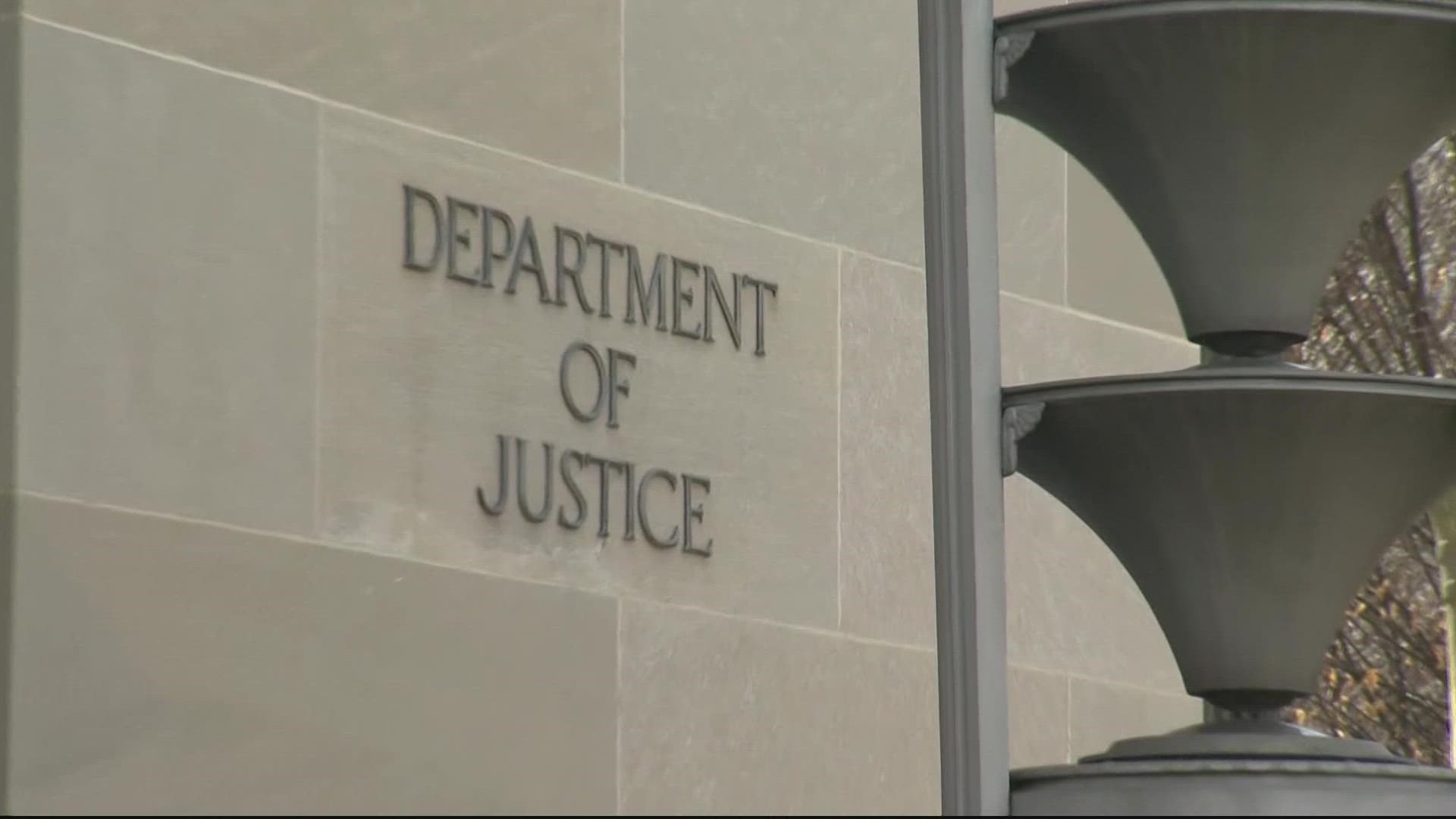WASHINGTON — The Department of Justice plans to send monitors to some DC area polling sites Tuesday.
The DOJ said it will monitor adherence to federal voting rights laws in 64 different jurisdictions, across the country, in 24 states.
The DOJ will have its monitors at polling sites in four local communities. They include Prince George’s County, Prince William County, Manassas city, and Manassas Park city.
The monitors include employees from United States Attorney’s Offices, the Civil Rights Division of the DOJ, and from the Office of Personnel Management.
Monitors will specifically look to see if there are any violations committed in relation to the Voting Rights Act, the Uniformed and Overseas Citizens Absentee Voting Act, the National Voter Registration Act, the Help America Vote Act and the Civil Rights Acts, the Americans with Disabilities Act and any criminal statutes that prohibit voter intimidation and voter suppression based on race, color, national origin or religion.
The DOJ said its monitoring of polls across the nation is “standard” practice every year. It dates back to the passage of the Voting Rights Act of 1965 and is not tied to any threats of violence.
The DOJ decides to send election monitors to specific locations based on certain circumstances on the ground, in a particular jurisdiction in a particular election.
For example, at some locations, DOJ workers may primarily monitor disability accessibility. While, in another location, the department will focus its efforts on language accessibility.
Prince William County Elections Director Eric Olsen has participated in elections in the D.C. area for 12 years.
He said this is not the first time he will see DOJ observers on Election Day.
“I did meet with them last week, very briefly, and they just said they were going to be going around the sites and checking on some things,” he said. “Usually, the DOJ is helpful to election offices. They give us feedback on compliance issues that they observe. If they see anything, they let us know things that we can improve upon.”
Olsen said he understands the DOJ will be observing polls in his county to see if there are any issues that come up regarding language barriers. More than a third of the population in Prince William speak another language other than English, when at home, according to county data.
“We now have a Spanish requirement, in Prince William County, as of earlier this year,” Olsen said. “So, our ballot is in both English and Spanish. All of our instructions and signage at our polling places are in English and Spanish. We have processes to help out voters whose, English is either not a strong language or not their first language, to make sure that they have equal access to the polls as well.”
He said he does not expect any monitors to impact the experience of voters, on Election Day, in the county.
“We have a lot of observers at any polling place and election,” he said. “We have poll watchers, we have international observers, we have neutral observers. So, at any given polling place, there's oftentimes somebody kind of keeping an eye on the process. And, so, it's pretty routine for us, the election officers know how to handle it.”
Linda Thornton-Thomas serves as President of the Prince George’s County chapter of the NAACP.
Her organization will have some members observing activity outside polling places too. She welcomes the addition of DOJ efforts.
“We are a county where we have about 70% minorities,” she said. “And, of course, it's important that people know their rights, but also, we have to keep in mind that people are looking for opportunities to prevent people from voting because they either don't want something to pass, they're looking at an amendment or perhaps something at the local level, even at the state level, to encourage them to not vote.”
Thornton-Thomas said her chapter, which does not endorse candidates, received complaints about voter intimidation in the past. She said a few years ago, some locals said they received robocalls trying to confuse them as to when was the correct day to vote.
She said having monitors at a polling location provides everyone with an equal opportunity to vote.
“We want everyone to vote,” she said. “We don't want anyone to feel uncomfortable about not having the right to vote, decide to leave.”
In a press release, DOJ said voters can also reach out to the department online or by phone on Election Day to report any possible violations they might see.
However, the DOJ adds that any complaints related to disruptions at a polling place should be immediately reported to local election officials.
“Complaints related to violence, threats of violence or intimidation at a polling place should be reported immediately to local police authorities by calling 911,” DOJ’s statement reads. “These complaints should also be reported to the department after local authorities have been contacted.”

